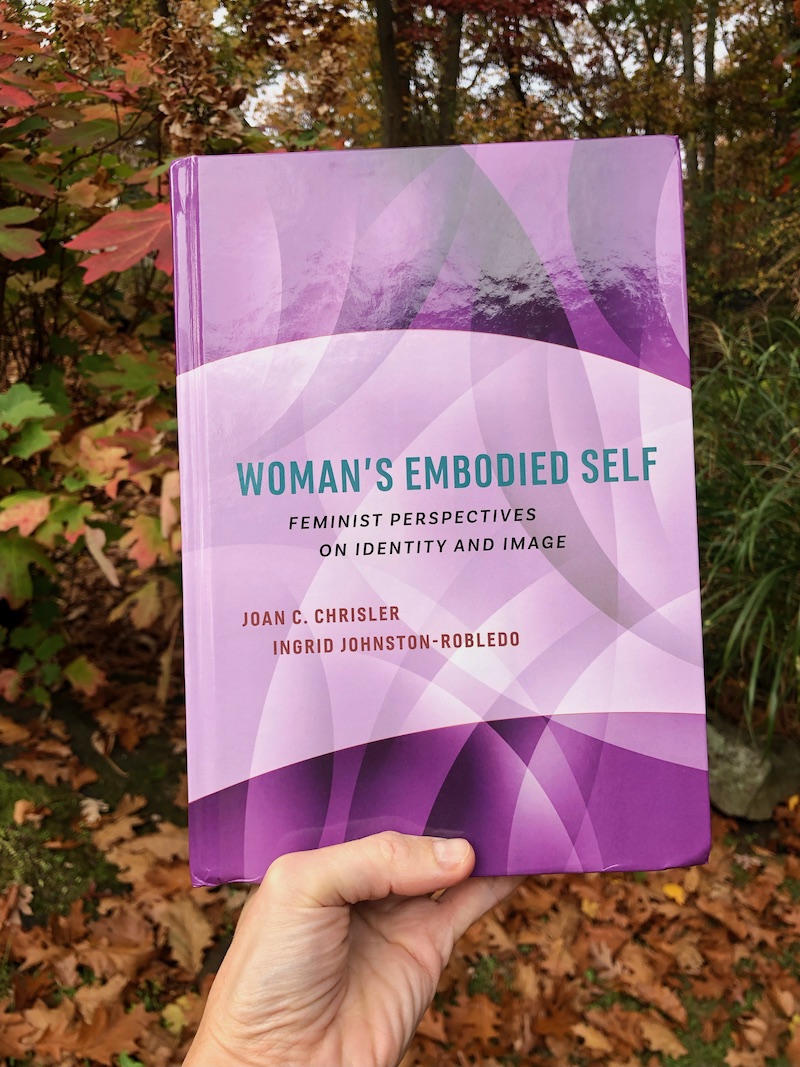Women’s Embodied Self: Feminist Perspectives on Identity and Image by Joan C. Chrisler and Ingrid Johnston-Robledo

Women’s Embodied Self: Feminist Perspectives
on Identity and Image
by Joan C. Chrisler and Ingrid Johnston-Robledo
American Psychological Association
2018
Hardcover, 273 pages
ISBN: 978-1-4338-2712-9
Book review by Jenna Hollenstein
The constellation of factors that form a woman’s sense of self is often too crowded with nuance and overlapping (and conflicting) influences to make sense of. Understanding issues around beauty, body size, sexuality, disability, illness, reproduction, and aging– whether we lead with head, heart, or gut–can benefit from intellectual analysis if only for context and validation. Chrisler and Johnson-Robledo’s excellent collection of feminist theories fills a deep void in the understanding of the most basic way women experience life: in our own bodies.
Through a scholarly but always humane lens, the authors examine the various theories that influence women’s embodiment, including:
- how we “do” gender,
- through social comparison,
- how we seek safety and belonging according to our strongest influencers,
- how we learn to objectify ourselves,
- the medicalization of the body,
- how we manage a fear of death,
- how we seek to avoid the stigma of deviating from social expectations, often through enacting stereotypes,
- through the internalization of a “benevolent sexism,” and
- by attempting to perfect the body to concretize a positive social identity
Different from most scholarly attempts to characterize embodiment, however, the authors offer hope in the form of practical contemplations about opting out of limiting constructs: “The more physically and mentally free and socially empowered a woman feels, the more likely she is to experience positive embodiment, which Piran and Teall (2012) defined as comprising agency, self-care, and joyfulness.” Active embodiment–anchoring in the body as a means of “practicing” an embodied “inside-out” perspective–is one such approach. The emphasis on how it feels to move strengthens the emphasis on feeling, being, and appreciating the body’s abilities, thereby weakening the tendency for self-objectification.
I deeply enjoyed nerding out with Chrisler and Johnson-Robledo. Their book has helped me feel hopeful for a future in which women can live not as fraught ornamentation but as complex, capable, and whole humans with deeply held values.
Jenna Hollenstein is an author, nutrition therapist, and meditation teacher. She lives in the greater New York City area with her partner, son, and her cat, Lucy.
